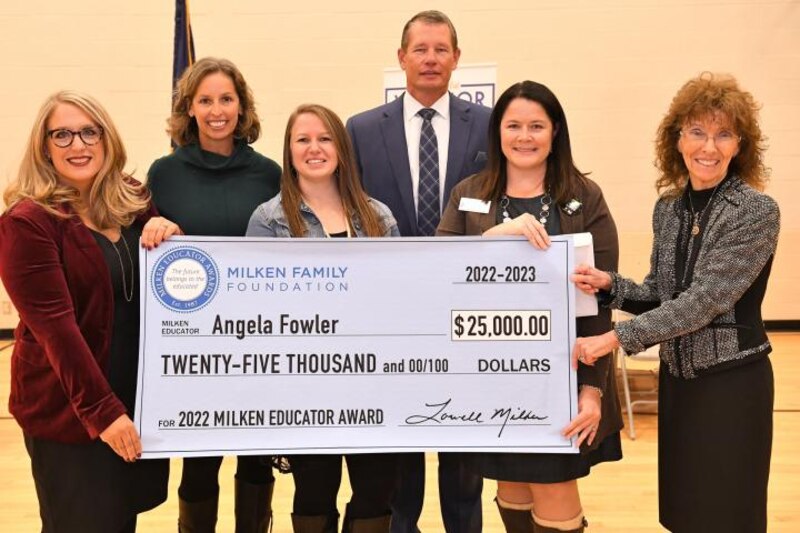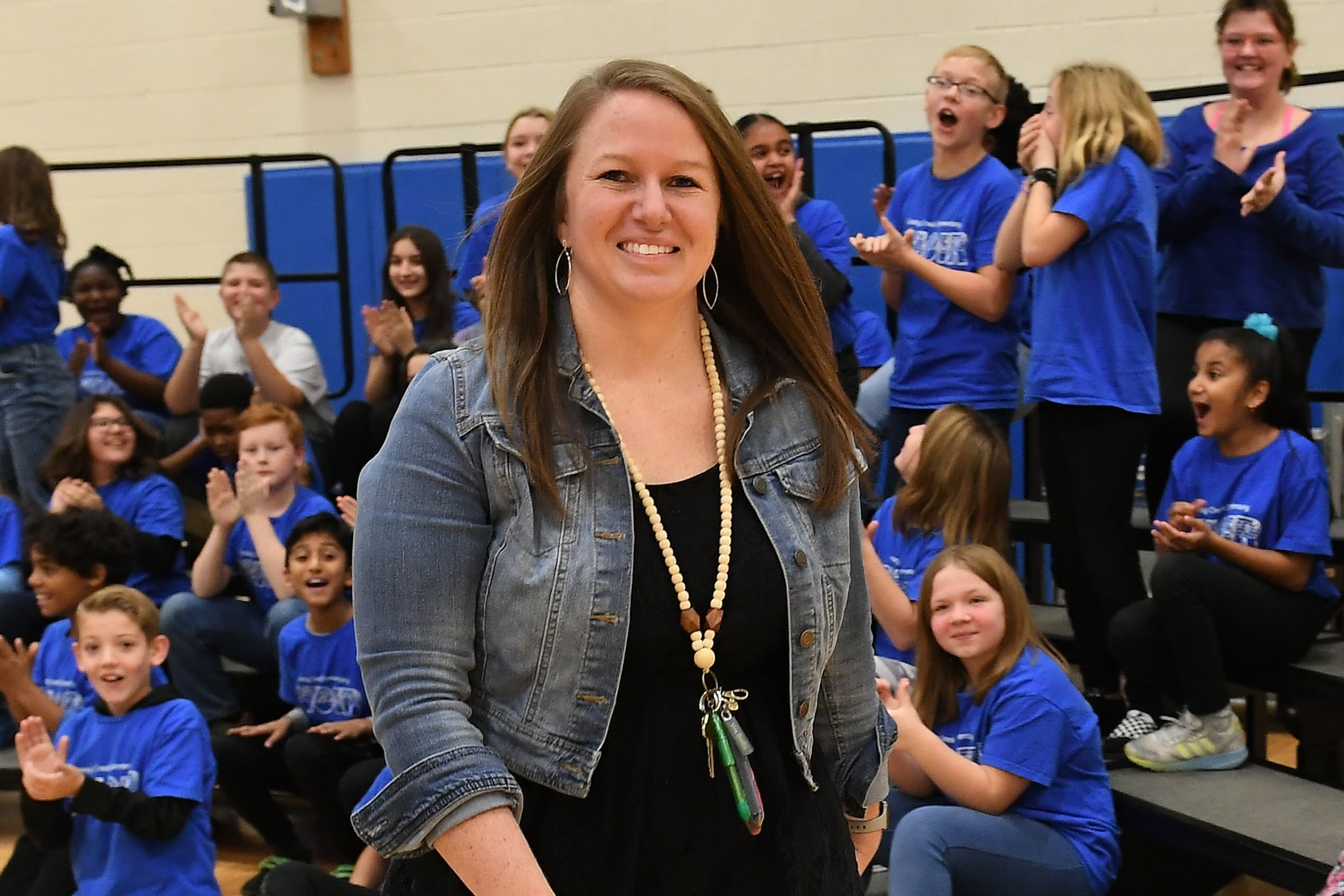Fourth grade math teacher Angela Fowler knew well that “new math” frustrated some of her students’ families.
They were confused by the new method of teaching, one that bears little resemblance to how they were taught the subject decades earlier.
Her solution was to host a math night for parents and guardians at Grassy Creek Elementary in Johnson County. There, she gave them the tools and vocabulary they needed to help their children with math concepts at home.
This kind of engagement recently earned Fowler the prestigious Milken Educator Award, which recognizes the accomplishments and potential of early- to mid-career teachers nationwide.
The $25,000 award highlighted Fowler’s work in improving students’ mastery of math skills through small-group instruction and after-school tutoring. It also recognized her extracurricular efforts, such as leading professional development sessions for her colleagues and organizing the schools’ Girls On the Run Club — a program that emphasizes physical activity and self-confidence for girls.

Fowler recently spoke to Chalkbeat Indiana about the teachers who inspired her, how she finds “magic in collaboration,” and why she loves to demystify fractions for her students.
This interview has been lightly edited for length and clarity.
How and when did you decide to become a teacher?
First of all, teaching is in my blood! My mother, aunts, uncle, and sister were or are teachers. As a kid, I can only remember wanting to be a teacher. Also, during my own education, I had many phenomenal teachers who helped mold me into the person I am today. These teachers were present in my life by teaching me academics inside the classroom, but were also there outside of the classroom as athletic and academic coaches. I was inspired by these teachers, and I want to be a transforming teacher to as many students as possible just like they were for me!
What’s the best advice you’ve ever received, and how have you put it into practice?
Some of the best advice I have received is that as an educator, you can’t do it all by yourself. In one classroom of 25 students, the diversity of students is so great in regards to academic skills, traumatic experiences, maturity, social skills, abilities, medical needs, culture, language, socioeconomic status, family dynamic, etc. that it is truly impossible to get every child what they need every day on your own. This can be a very defeating feeling, and I am sure that it leads many to change professions. Once you realize that you can’t do it all by yourself, you begin to work with colleagues, and that is where the magic of collaboration lives. You must lean on others and work with others to serve students to the best of our ability each day.
Tell us about the Girls on the Run club and the math night you host.
I had heard of the organization, Girls on the Run, before at other schools and then came to be good friends with some people on the board of the program. After talking with them more about the program, I knew that the students at my school needed this amazing opportunity! I had noticed a decrease in many important life skills in students after the years that the pandemic affected education as we knew it. This program allowed for these life skills to be focused on along with physical activity. It has truly been so wonderful to bring this program to Grassy Creek girls!
Having a math night for parents and guardians is something that I started up this year at my school. I noticed that as my math instruction has changed to a more conceptual approach, parents and guardians were struggling to relate and help their children expand their math knowledge at home using the same vocabulary and techniques to understand the math. There seems to be a lack of understanding with parents and families with the “new math” they are hearing their students talk about, and I wanted to do something to mitigate as much frustration and negative perception of this approach to math as possible. Many parents and guardians do not understand why we have moved to a more conceptual approach, and that is only because they were not taught in this manner and have not been shown the benefits. This night was truly created to help inform parents. We are planning to make this an annual event.
What’s your favorite lesson to teach and why?
Over the years I have come to love teaching about fractions. I think that I have grown to love it so much because for many people, the word, “fractions” makes them cringe. I want to be the teacher that demystifies fractions for kids and helps fractions come to life. Fractions aren’t scary at all, and I want kids to come to know and truly understand the concept.
Tell us about your own experience with school and how it affects your work today.
I was very blessed to receive an education from many wonderful teachers growing up. These teachers were not only figures in the classroom, but they were actively involved in the school community as well. School was a positive place for me where I felt supported and loved. This led me to have a great perception of school. I want to be one of those supportive teachers who students want to come to school to see and learn from. I want to be a positive role model in their life and foster strong relationships with students. That is what I center my work on.
Aleksandra Appleton covers Indiana education policy and writes about K-12 schools across the state. Contact her at aappleton@chalkbeat.org.








